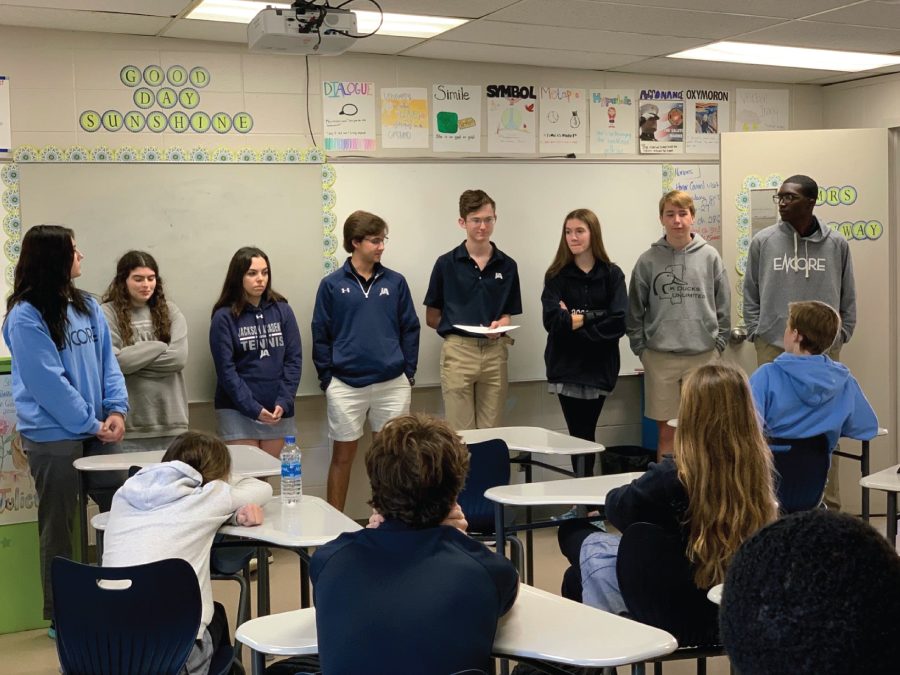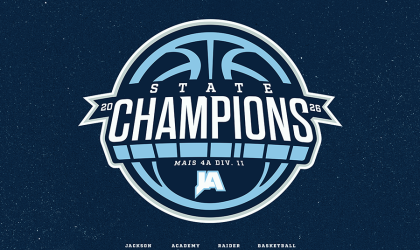
The Upper School Honor Council spoke to ninth grade English classes about plagiarism and how to prevent cases of academic dishonesty this month. Members shared about the importance of academic integrity and introduced various ways to protect student work. Members also explained the ways plagiarism occurs, particularly in writing assignments and papers. Although the Honor Council has reviewed cases related to academic dishonesty this year, the group members primarily focus on educating their peers to limit the number of cases before the council.
A vital element of that education includes helping students recognize the importance of academic integrity now and in the future, explained Honor Council Chairperson Maggie Koury. “Coming before the council in front of your peers is an eye-opening experience that gives us, the council, an opportunity to explain what plagiarism is, how to avoid it, and JA’s zero-tolerance policy on plagiarism,” said Koury. “In addition, we emphasize that higher education institutions do not tolerate plagiarism, and [violations] would most likely result in expulsion, so the lessons learned about plagiarism in the classroom or in front of the honor council are valuable.”
Both Maggie and fellow Honor Council Chairperson Connor Gee would like students to understand the intent of the council. “I want the students to know that we are here to help them. Before the Honor Council, if a student were caught cheating, they would receive a zero on the assignment,” said Gee. “If they cheated on a test, they would likely fail the class and would not learn the material. Instead, we aim to give the students a chance to learn the material by retaking the test and getting their scores reduced to a number fair to everyone. The Honor Council also familiarizes the students with an Honor Code, which is vital in college.”
Designed to benefit students and led by students who apply to serve, the Honor Council helps instill the idea of striving for excellence using honesty, integrity, and confidentiality. “What some seem to forget when they come before us or view us is that we are students, too. We have to work the same assignments, manage time, and feel the same pressure as everyone else,” said Koury. “But with this in mind, we tailor our decisions and aim to take these factors and experiences into account to ultimately teach a lesson, reduce recurrences, and benefit the student. Not only does the honor council benefit those who come before us, but we also exist to protect the students who work hard on their assignments and their integrity.”
The faculty advisor for the Honor Council is Sandra McKay. The Honor Code was developed in fall 2017 with leadership from the student body and introduced to the campus in January 2018.
To learn more, click here to view the Honor Code and click here to read the news item on Upper School students and faculty signing the honor code.

